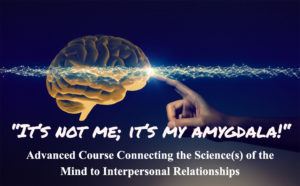Podcast: Play in new window | Download (Duration: 59:47 — 41.2MB)
Subscribe: Apple Podcasts | Spotify | Amazon Music
 Discover an innovative program that delivers mental health care with proven effectiveness in low-resource settings, the Friendship Bench. It is so effective and deliverable, it has now spread world-wide.
Discover an innovative program that delivers mental health care with proven effectiveness in low-resource settings, the Friendship Bench. It is so effective and deliverable, it has now spread world-wide.
Researcher and program director Dr. Ruth Verhey and co-host Sue Marriott discuss this powerful community-based intervention, the Friendship Bench. Together, they explore the benefits and barriers to building a community-driven and cooperative approach to mental health. By looking at what makes it effective, we can begin to explore what makes therapy effective in general and learn from the need to strip away the “extra” that may not add value to mental healthcare.
If you enjoy this one you may be interested in others we have published:
Inspiring interview with Alphanso Appleton from Robertsport, Liberia discussing non-traditional therapy, click here: Episode 109 This is Resilience in Action
Who is Dr. Ruth Verhey?
What is the Friendship Bench?
The Friendship Bench provides sustainable community-based psychological interventions that are evidence-based, accessible and scalable.
- It started in Zimbabwe as an attempt to enhance overall quality of life. Now it has grown and become a worldwide project.
- The concept is to build benches where anyone can come and talk through their struggles. The key is to provide them with individuals from their community who they can trust and really be heard by.
- Program development: Dr. Verhey and her partners trained what they call “Grandmothers” to sit and be present for anyone who needs them. These Grandmothers are lay healthcare providers and aren’t all women, but are often respected and elderly members of the community.
- Importantly, these Grandmothers and the Friendship Bench serve a therapeutic function. They work cooperatively with people in need and help build them up through a three step program.
- Steps:
- 1. First, they open up the mind. In doing so, they break down the barriers to change and challenge the stigmas associated with different mental health experiences.
- 2. Second, they work to uplift the people who sit with them. The Grandmothers work hard to make sure people can feel heard and felt.
- 3. Third, they strengthen their patients. When the Grandmothers give even small boosters, they remind people that they are there and that they matter. This helps to lay a foundational experience of belonging and support which helps people grow in the long term.
- It turns out – no surprise here if you think about it – the Friendship Bench didn't just help the participants. The Grandmothers themselves also reported increased quality of life and lower rates of depression and anxiety. Helping others was key in building up their skills to help themselves. Really sitting and listening was healing in and of itself.
Friendship Bench Research & Resources
Website: www.frienshipbench.zimbabwe.org
The TEDTalk can be found here. We encourage you to watch it. Really, it's so inspiring!
https://www.bbc.com/future/article/20181015-how-one-bench-and-a-team-of-grandmothers-can-beat-depression
Effect of a Primary Care–Based Psychological Intervention on Symptoms of Common Mental Disorders in Zimbabwe A Randomized Clinical Trial 2016 Chibanda Journal of the American Medical Association
Looking for CEU's?? We've got you covered, use OURCLAN for 10% off –
It's Not Me It's My Amygdala – Advanced Course Connecting the Sciences of the Mind to Everyday Relationships














